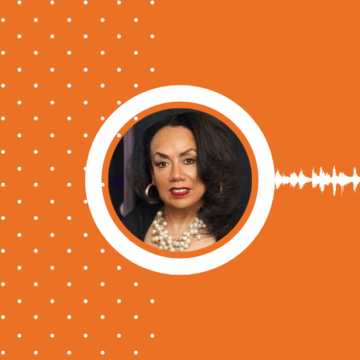Medical debt can come from various sources, and understanding your payment options can help you avoid high-interest charges.
Medical credit cards and loans may seem convenient, but high interest rates after promotional periods can quickly increase your debt.
Nonprofit agencies like GreenPath offer Debt Management ProgramsDebt Management Programs that can help consolidate medical debt into a single payment with potentially lower interest rates.
Healthcare expenses can lead to a range of medical debt, from hospital stays and regular doctor’s visits to dental procedures, veterinary bills, and even eye exams. Most medical providers offer payment plans with low or no interest charges, but not everyone is aware of those options. Unfortunately, some providers may actively push you away from these lower-cost options and towards high-interest financial products like medical credit cards.
Medical credit cards have become more popular and prevalent in healthcare settings. These cards often have a promotional rate of 0% interest for several months at the beginning, but then the rates can increase significantly. Studies show that medical credit cards, on average, have higher interest rates than regular credit cards (Consumer Finance Protection Bureau).
If you have high-interest medical debt already, you are not alone—and you have options.
- Qualify for a Lower-Interest Consolidation Loan:
Debt consolidationDebt consolidation involves obtaining a new loan with a lower interest rate than what you are currently paying. Consolidation loans require a credit check and decent credit. Some lenders may still offer you a loan with a lower credit score, but the interest rate may be high.
You may find better rates at credit unions or financial institutions you have a history with. However, ensure that any new loan’s interest rate is lower than what you are currently paying to achieve savings and pay down the debt more quickly. - Say “Yes” to a “No-Loan” Consolidation Program:
Another option to pay down high-interest medical credit cards more quickly is a Debt Management Program (DMP)Debt Management Program (DMP). Some people refer to the Debt Management Program as a “no-loan debt consolidation” because all debts get combined into one payment timed with your pay schedule, and interest rates are often lowered. But DMPs are different from a consolidation loan because it is not a loan, and you don’t need good credit to qualify.
Once interest rates are lowered, more of the payment goes towards the principal, allowing the balance to be paid down sooner. Debt Management Programs are typically designed to pay off debts in full within three to five years. This can be a good option for those who do not wish to take out a loan or who wouldn’t qualify for a lower-interest debt consolidation loan. - If You Get a Medical Bill You Can’t Pay, You Have Options:
We have all been at the counter at the doctor’s office and felt the pressure to pay a medical bill right away. But most medical bills do not need to be paid immediately. Staff may be insistent, but you have the right to consider which payment option you will use. If the bill is large and you know you won’t be able to pay it in one lump sum, ask for a payment plan.
Some people do choose to pay medical bills with a credit card but consider whether you will be able to pay the full credit card balance at the end of the month. Otherwise, you’ll be paying high credit card-level interest rates on your medical bill, when you could have gotten a no-or-low-interest payment plan from your provider.
Some people may choose a medical credit card, which often has a 0% promotional interest rate for several months. But make sure you can pay off the debt during that promotional period, because interest rates can increase sharply after that—sometimes even higher than a typical credit card. - Communicate Directly with Your Healthcare Provider’s Billing Department:
Before using a credit card or loan, try working with your provider’s billing department. Asking for an itemized list of charges can help you catch errors and question costs that may seem incorrect.
For example, if your bill is $3,000 and you immediately open a medical credit card to pay but later find out the actual cost is only $2,000, you’re still liable for the original $3,000 with interest added. Instead, work directly with your provider on a payment plan. Many providers are willing to accept small monthly payments, which can also help prevent the debt from being sent to collections. - You May Have Access to Unexpected Insurance Coverage
You’re probably familiar with the medical insurance offered by your employer, but many employers offer additional types of coverage as well. Pet insurance, for instance, is becoming more common as a workplace benefit, and some employers also provide extra prescription coverage, diabetes coverage, and more.
Reviewing these options regularly can help you save on out-of-pocket costs and avoid large, unexpected medical bills. Pet insurance, for example, may help avoid big veterinary bills, while additional prescription coverage can lower pharmacy costs. - Understand the Consequences of Non-Payment
Medical debts are no longer supposed to impact your credit scoreimpact your credit score, and unpaid bills under $500 shouldn’t appear on your credit report. However, unpaid medical debts can still have consequences, especially if the balance is large.
Medical providers may refuse further treatment if you have outstanding bills, or they may send your account to collections. Collection agencies are often very persistent in trying to contact you, and they may even take you to court for payment. In extreme cases, collection agencies could garnish your wages or place liens on your assets.
Bottom Line: You Can Regain Control
Consolidating medical debt can be an effective way to regain control of your finances and avoid costly interest charges. Whether you choose a consolidation loan, a Debt Management Program, or work directly with healthcare providers, it’s important to understand your options and find the best solution for your situation.
You don’t have to navigate this alone—nonprofit organizations like GreenPath can offer guidance and support to help you manage and pay off your medical debt more efficiently. By taking proactive steps and exploring all available resources, you can reduce your financial stress and focus on healing without the burden of overwhelming debt.
You Might Also be Interested In…
Navigating Medical ExpensesNavigating Medical Expenses
What You Will Learn
- How to be proactive in minimizing out of pocket medical expenses
- How to manage medical costs
- Knowing your rights regarding medical billing and collections
GreenPath Financial Service
GreenPath, A Financial Resource
If you’re interested in building healthy financial habits, paying down debt, or saving for what matters most, take a look at these free financial tools.










